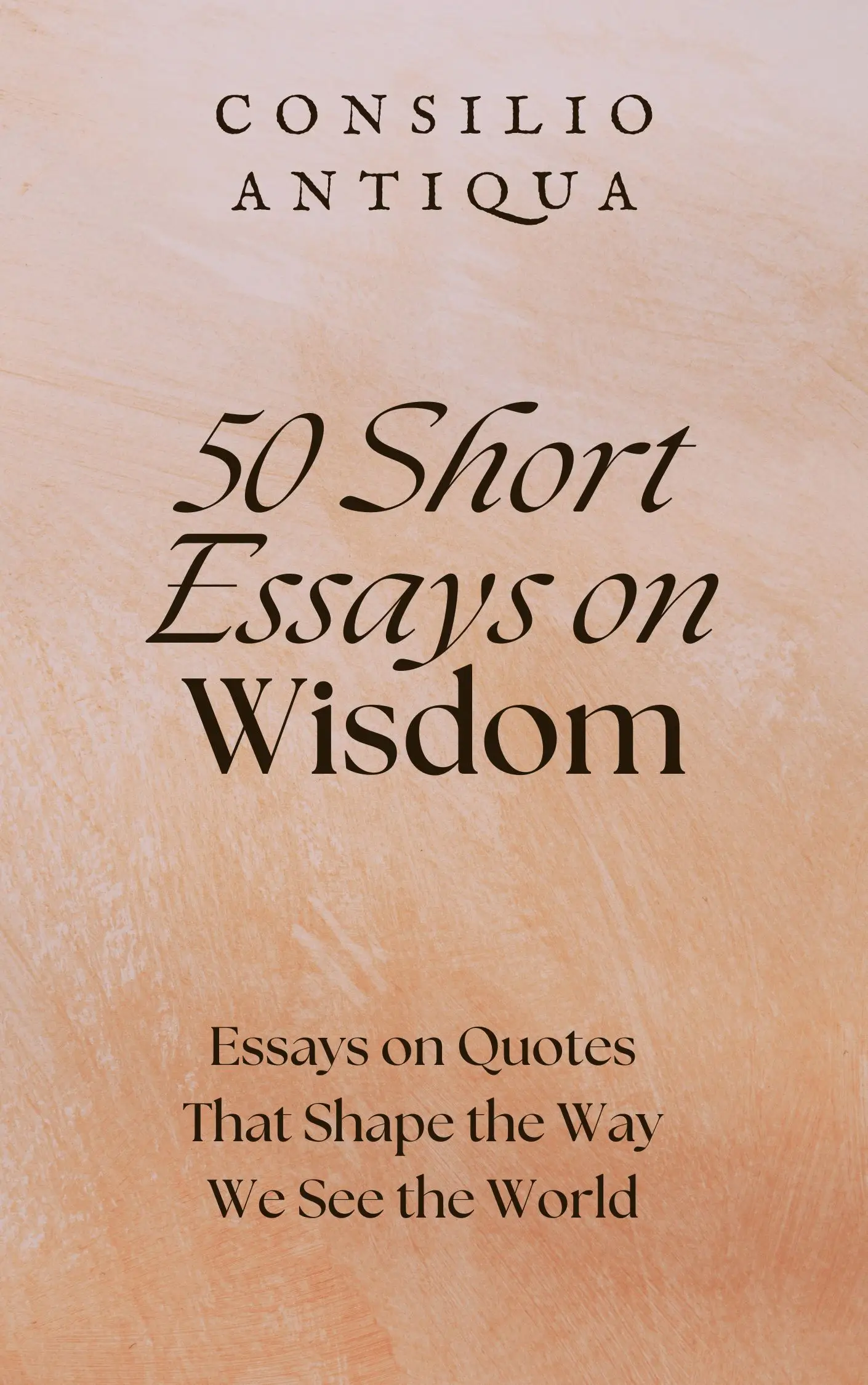
50 Short Essays on Wisdom | A Life Worth Living
A Life Worth Living
"The unexamined life is not worth living." – Socrates
The chipped porcelain teacup warmed my hands, the steam a fragile ghost against the dawn. Outside, the city stirred, a low hum of unseen lives. Socrates' words, etched on the cup's rim, felt suddenly heavy, a weight not of condemnation, but of profound invitation. This essay explores the enduring power of self-examination, its relevance in a world often characterized by relentless motion, and the quiet beauty of a life lived with conscious intention.
Socrates, a figure shrouded in both legend and philosophical inquiry, didn't leave behind written works. His wisdom, however, lives on through the accounts of his students, most notably Plato. In the dialogues, self-examination isn't merely introspection; it's a rigorous process of questioning beliefs, assumptions, and motivations. It's a relentless pursuit of truth, not for the sake of intellectual pride, but for the betterment of the soul. The unexamined life, for Socrates, wasn't simply a life lacking introspection; it was a life adrift, unmoored from a deeper understanding of its own purpose and values. This pursuit was inextricably linked to virtue, suggesting that a life lived without self-awareness is a life unlikely to achieve ethical excellence.
The core of Socrates' assertion lies in the inherent human capacity for self-awareness. We are not merely creatures of instinct and reaction; we possess the remarkable ability to step back, observe our thoughts and actions, and assess their alignment with our deepest values. This capacity, however, requires conscious effort. It demands a willingness to confront uncomfortable truths, to challenge ingrained biases, and to engage in a constant process of self-reflection. The unexamined life, therefore, is not a life devoid of activity, but a life lived on autopilot, propelled by unexamined desires and unexamined fears. It is a life that risks becoming a vessel for external forces, rather than a conscious expression of one's authentic self. This wisdom endures because the human condition remains constant: we all grapple with questions of purpose, meaning, and ethical conduct.
In our hyper-connected world, the pressure to conform, to achieve, and to maintain a curated online persona can be overwhelming. The constant barrage of information and the relentless pursuit of external validation often leave little room for introspection. Yet, Socrates' message remains profoundly relevant. The relentless pursuit of success without self-reflection can lead to a sense of emptiness, a feeling of disconnect between our outward achievements and our inner selves. Consider the individual driven by ambition, climbing the corporate ladder, yet feeling increasingly alienated and unfulfilled. Or the artist consumed by the need for external validation, sacrificing their artistic integrity for fleeting popularity. These are examples of lives lived without sufficient self-examination, lives that, despite outward success, lack a deep sense of purpose and meaning.
How often do we pause to truly examine our motivations? What are the values that truly guide our actions? Do our choices reflect our deepest aspirations, or are we simply reacting to external pressures? These are not easy questions, and the answers may be uncomfortable. But the process of asking them, of engaging in that Socratic dialogue with ourselves, is precisely what gives life its depth and meaning. The journey of self-discovery is not a destination, but a continuous unfolding, a process of growth and transformation. Embracing this journey, however challenging, is to embrace a life truly worth living.
Socrates' words are not a condemnation, but a call to action. The unexamined life may not be devoid of activity, but it lacks the richness, the depth, the profound sense of purpose that comes from knowing oneself. It is in the quiet moments of reflection, in the courageous act of self-examination, that we discover the true worth of our lives. Let us embrace the challenge, and in doing so, discover the beauty of the unfolding self.
